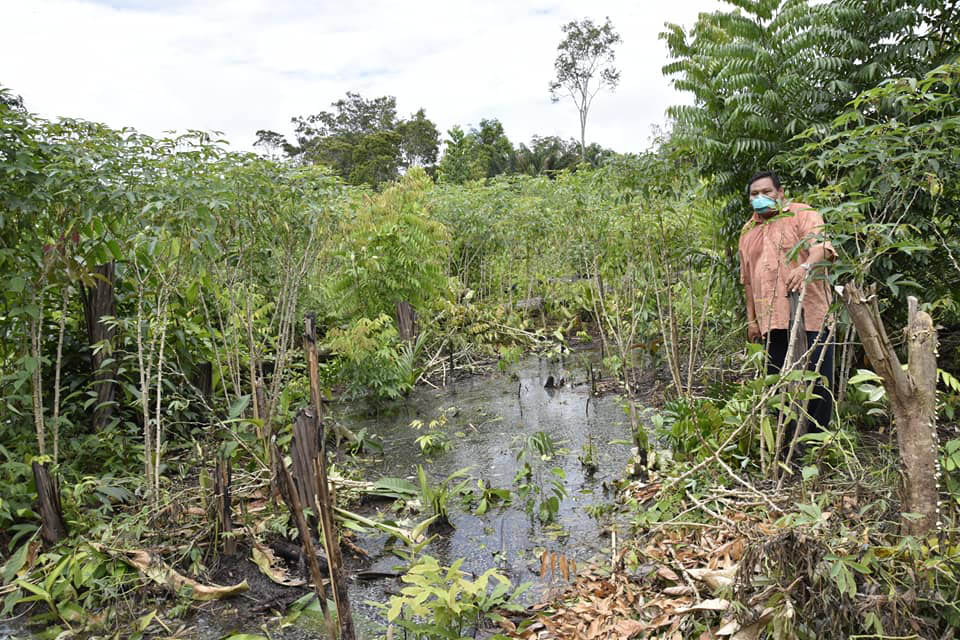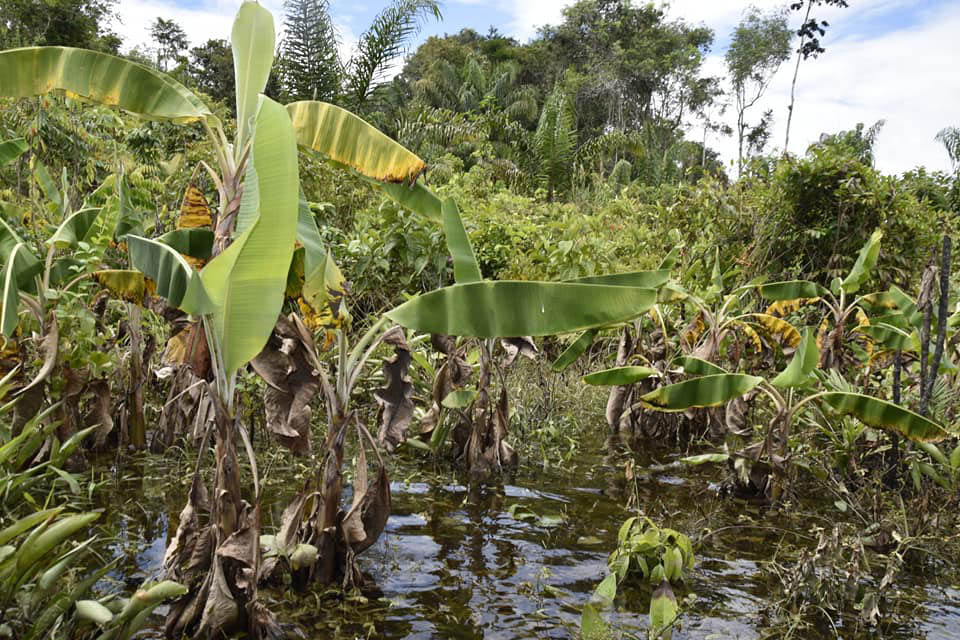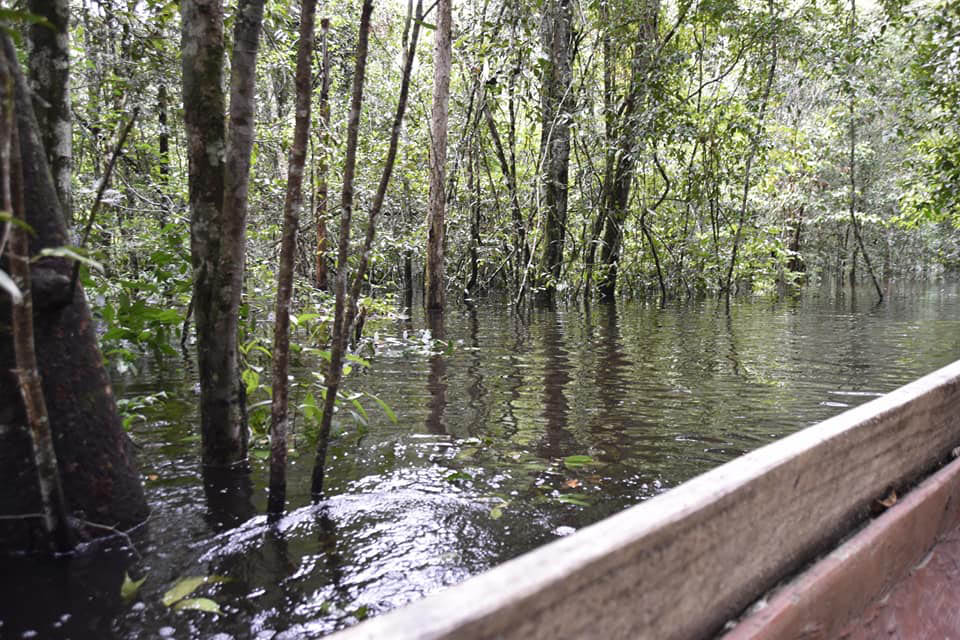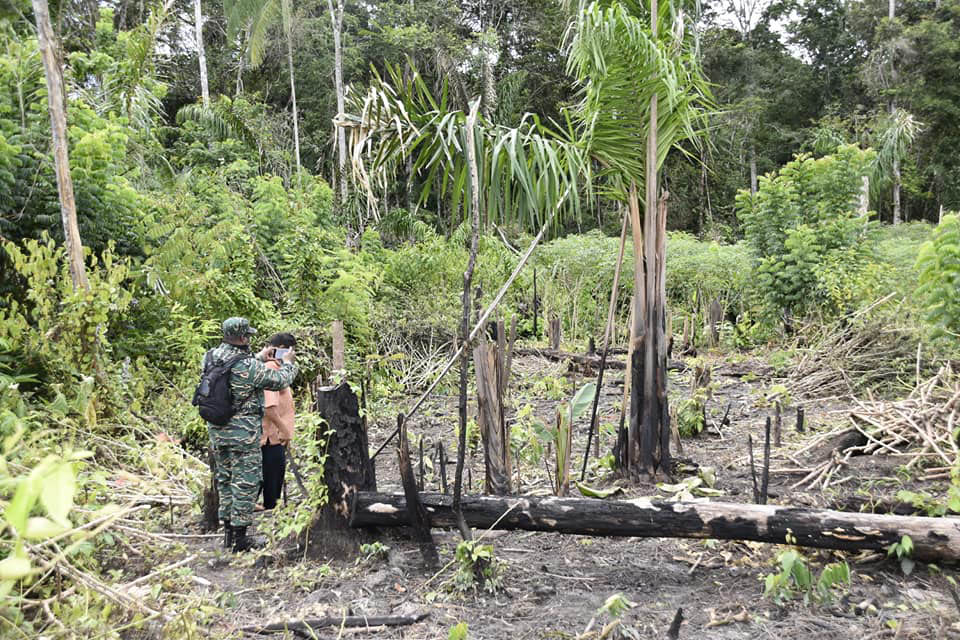A team from the Civil Defence Commission (CDC), yesterday travelled to Gunns/Masekenari Village in the Konashen District, Upper Takutu-Upper Essequibo (Region Nine) to conduct a disaster risk assessment and it handed over 60 food hampers to the Toshao, Paul Chekema.
According to a release from the Ministry of the Presidency, CDC Senior Response Officer, Captain Salim October said the Commission was asked to provide support after continuous rainfall resulted in widespread flooding within the community.
‘‘The CDC, in collaboration with the Ministry of Indigenous Peoples’ Affairs, as well as the community of Masekenari, would have seen this humanitarian mission mounted to deliver food supplies that would help the community to manage given the effects and impacts of recent floods. The area is flood prone and it has been exacerbated by the heavy rainfall over the last week. With that in mind, the Masekenari community would have seen a number of their farms and their staple, the cassava would have come under water inundation. This has resulted in the community reaching out for assistance. The CDC would have partnered with the Ministry to enter the community and provide assistance as well as take a first-hand look at the situation,’’ he said.
October said the team was able to take a firsthand look at a few farmers in the remote community, and to engage the Toshao and some residents to obtain a better understanding of their challenges.
‘‘We can certainly appreciate that the community has suffered some losses especially with their root crops. When their root crops are affected, they are unable to sustain their communities to some extent. At the present moment, they cannot produce farine or any of their other foods because the cassava is affected and secondly, they depend on animal fat to make their farine and they cannot go to Brazil for this because of the COVID-19 measures,” October added.
Chekema, in an invited comment, said the village had been inundated over the past week and as soon as supplies started to dwindle, he sought assistance from the authorities.
‘‘Many of our farms have been destroyed and the cassava are rotting. We don’t know how long more this is expected to continue but we reached out to the Ministry of Indigenous Peoples Affairs and we have gotten help. So, I want to say thank you,’’ he added.





